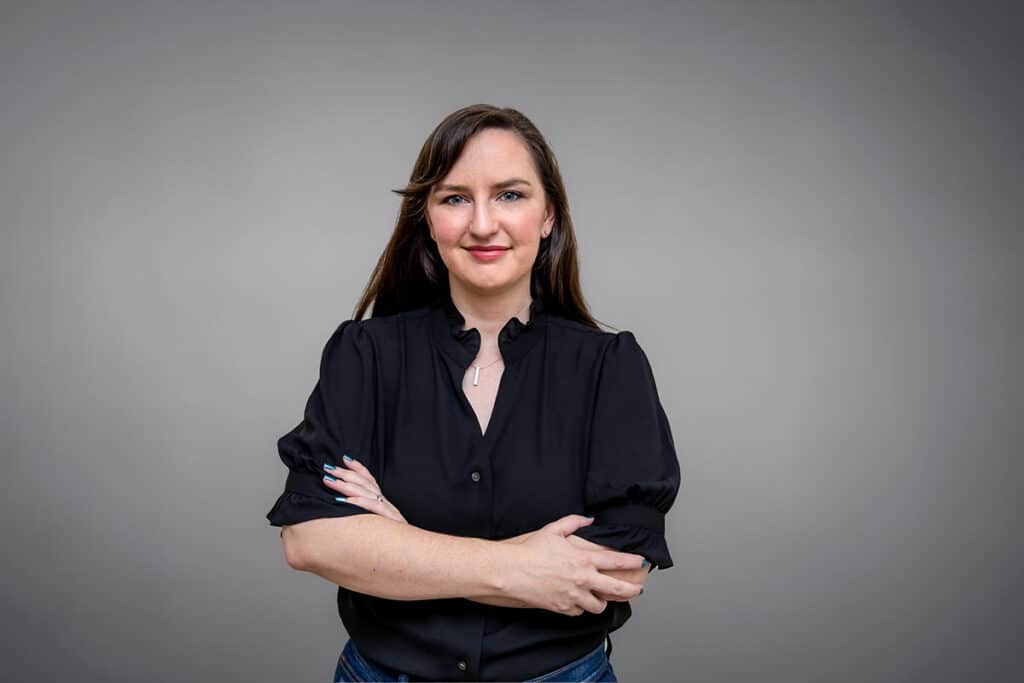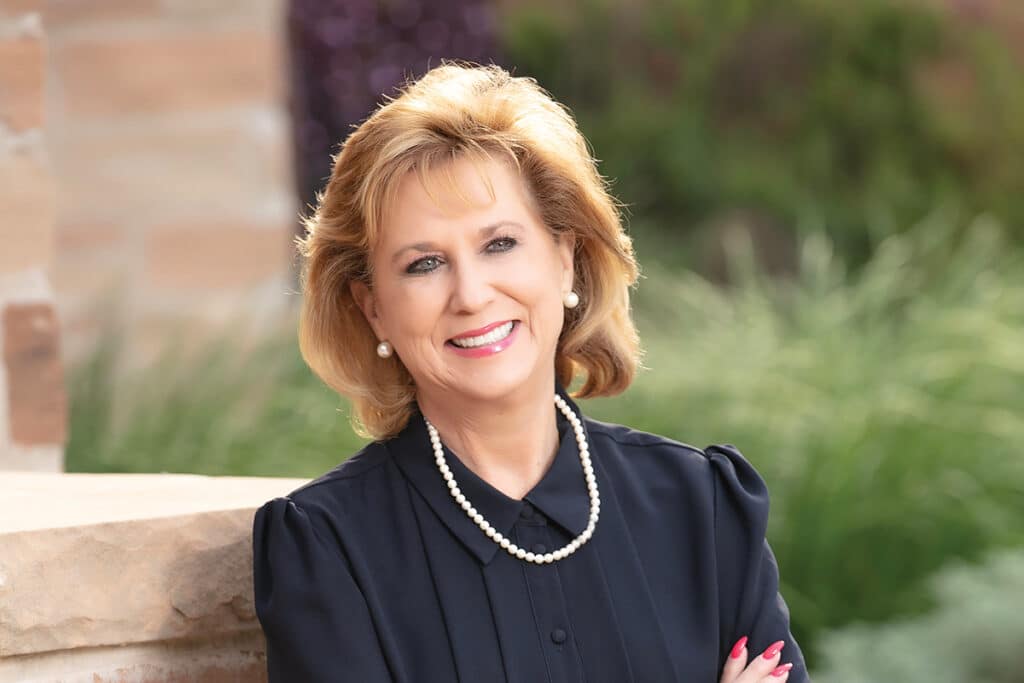One sure barometer of economic health is real estate. The chain works something like this: Homes get built, and commercial enterprises come in to serve the population. Jobs are created, money changes hands, and the city thrives from the business and sales tax pipeline.
If commercial real estate — office buildings and shopping centers — seem to be popping up all over San Antonio, it’s not an illusion. Generally speaking, commercial real estate is growing at an unprecedented rate, making it an economic mover and shaker for all the players.
The industry is competitive and diverse, including jobs in areas such as investments, development, brokering and property management. Some companies offer integrated services that comprise all facets of the industry, while others find an advantage in focusing on a specialized area of expertise.
Although once regarded as a male-dominated industry, the numbers are climbing toward gender balance, nearing a 60:40 ratio nationally, according to the Commercial Real Estate Women (CREW) Network, a national professional association supporting women in the field.
Locally, the industry is both attractive and lucrative for women. Here, you’ll meet five local women who have built successful careers in commercial real estate.
Silvia Gangel, CCIM
President/Founder
-SiGa International
When Silvia Gangel’s family relocated to Texas in the 1980s, she paid very close attention to the real estate transaction. “I was intrigued, and I wanted to know more about real estate,” she recalls. Gangel began taking real estate courses not long after, but she diverted quickly from the residential real estate that pulled her in, to commercial transactions, where she has spent 21 years fostering a niche in brokering deals for clients.
Her career started with a lot of rough spots. Real estate was one of the worst markets in which to make a living in the 1980s, and every company Gangel went to work for went out of business. Frustrated by having to change jobs so often, Gangel opened her firm in 1991.
“Job stability was not a choice back then,” she says. “I wanted a successful career in commercial real estate, and the only way I could achieve it was to work for myself.” She was optimistic, believing that it would only be a matter of time before the market turned upward. “Every year since then has been better than the last, and I have not looked back,” she says.
Gangel describes her firm as a “boutique” brokerage, where she focuses on finding the best real estate deals for her select clients. She deliberately keeps her company small to maintain the personalization she strives for. The small size presents some resource and technology challenges, which Gangel overcomes by tapping into her professional network. The associations help her stay on top of industry trends and get the data she needs to present to her clients.
She works with people who are looking for opportunities to invest in real estate, as well as retail developers who are searching for ideal sites in high-traffic locations. “My career started with site selection for national retail and restaurants,” Gangel says.
As with most industries, an indicator of success in the transaction is when the client comes back for another deal. “The majority of the transactions I close are repeat business,” she says. “It’s the ultimate compliment, and it gives me a great sense of satisfaction.”
Gangel continues to be intrigued by the complexities of her work and relishes the challenge of finding creative ways to structure transactions. She also enjoys being in an industry that allows her to work alongside active leaders, both within real estate and outside of her profession.
She describes the best qualities for someone entering the field: “Enthusiasm, persistence and discipline are necessary for a woman to be successful in commercial real estate,” she says. “To be a true professional in this business, you need to have a strong work ethic and a willingness to do whatever is necessary.”
Gangel sees herself as an optimist, a trait that undoubtedly got her through those first volatile years in the business. She sees San Antonio as a market that is ripe with opportunities. “Our economy is moving toward the next plateau,” she says.
She looks at her career with the same bright filter. “There is no limit to what I can do,” she says. “This industry has provided me with an opportunity to own my business, make my own decisions and do what I love most.”
Guyla Sineni
Executive Vice
President/Principal
-United Commercial Realty
Guyla Sineni translates her job into pretty simple terms: “I create a vision and go out and make it happen.”
Sineni created her own vision in 1993, when she co-founded UCR’s San Antonio division with two partners — her husband, Tom Sineni, and Mike Gribble. When she was a marketing student at UT in the 1970s, she worked in an Austin department store and thought she would focus on a career as a retail buyer.
Then she took a real estate class. Sineni immediately recognized the synergy between retail needs and real estate knowledge. “I thought if I combined the two, I might really have something,” she says. After several years in El Paso and New Orleans, Sineni moved back to San Antonio in 1981.
She enjoys applying common business problem-solving equations to the projects she takes on. Older shopping centers, which have typically gone through several anchor tenants over the years, present a particularly appealing challenge, not the least of which is that when the anchor store goes away, the other businesses in the shopping center suffer, and many leave in search of greener fields.
“I do the SWOT analysis (strengths, weaknesses, opportunities and threats) and come up with a new direction so I can select the best tenant for the space,” she explains. “I have to find out why the last anchor left, and I have to survey the neighborhood — what’s it like today? Who’s living there? Are they young families or retirees? I interview other retailers in the area to learn who their customers are and to get a feel for the character of the neighborhood. If I attract the right anchor, the other businesses will follow.”
Sineni has a knack for breathing new life into neighborhood shopping centers, which she claims play a vital role in the heartbeat of a neighborhood. “The neighborhood stores will always be essential,” she says. “You want the conveniences close by — the sandwich shops, dry cleaners and beauty salons.”
She recalls that when she started in commercial real estate, there were virtually no other women in the field. “It’s funny when you think about it,” she jokes. “Who knows retail and shopping centers better than women? I knew I had that intuitive shopper’s sense about what works, but I had to convince people that I knew what I was doing when it came to developing the right tenant mix for shopping centers.”
She’s excited about the connection between the residential real estate boom and the resulting commercial growth: “The population and residential growth drives schools and retail development. When you have new neighborhoods and new schools, it’s time for retail to move in. The bigger shopping centers bring more people into San Antonio. The neighborhood shops create more cohesive neighborhoods. It’s a place to meet friends, it creates a sense of place.”
Although she is married to one of her business partners, Sineni says they don’t see much of each other in the office. “We catch up and talk business at home,” she says. “We like to cook together, and we enjoy golfing, but we don’t have much time to do that,” she laughs.
Cynthia Ellison, CCIM
SVP Transaction Services, Retail Group
-Grubb & Ellis
When she moved to San Antonio, Cynthia Ellison was thriving in her career with business technology giant IBM. A chance meeting with a couple of people in the commercial real estate field changed everything for her. “I had my MBA, and IBM had such a reputation for providing top-notch business training. I would probably still be working for IBM if I hadn’t met Tom Sineni and Mike Gribble, who both thought my background would translate to commercial real estate,” she says.
They were obviously right. Ellison recently observed her 25th anniversary with Grubb & Ellis. “It’s very unusual in this industry to have stayed with the same employer that long,” she says. Although she is at the top of her game, Ellison is not content to rest on laurels like job titles and corner offices — she still thrives on the day-to-day challenges that attracted her to the field in the first place.
She is one of relatively few women in the field who operates strictly on commission. Deals can take months, if not years, to orchestrate, and if the deal doesn’t go through, she doesn’t get paid for her effort. “I have to be self-motivated, or I won’t make a living,” she says.
Ellison specializes in retail brokerage, managing the complex transactions that take place between the cast of buyers and sellers, investors, landlords and tenants. In San Antonio, where commercial real estate and construction are booming, Ellison says one of her biggest challenges is keeping up with the quickly changing environment and the market conditions that affect the environment. “I have to know what’s available out there. I have to know the cost of the properties, the retail mix,” she explains.
San Antonio has become a popular place for investors, particularly those from other parts of the country where the real estate market has tapped out. “People are selling real estate on either coast at very high prices and they’re relocating here, where they can buy property at a much lower cost. It’s good for investment and development. I’ve never seen so much activity in retail development,” she says.
Ellison marvels at the new regional shopping centers in San Antonio, with the mix of large-scale national retailers, but knows that the smaller neighborhood centers are like the glue that bonds a community. “The mall is great, but it’s still nice to be able to go to a small boutique close to home,” she says. “Malls will always draw a lot of people, but corner shopping centers will always have a role.” Perhaps because she believes so much in the importance of the smaller retail outlets, Ellison recently took a couple of years on site improvement and a fresh tenant mix on a nearly-empty property, which she recently sold to an investor.
“This job is demanding,” she says. “When you’re helping people, they all want to be your No.1 priority, so prioritizing is something I have to work on all the time because I want all my clients to feel like they’re No.1,” she says.
Ellison works long hours for the payoff, but her success also means she’s earned the right to a flexible schedule. She sets her own hours and devotes much of her free time to family and friends. She confesses that she loves to entertain houseguests, and her home is a popular stopping point for traveling friends and relatives. “I love to cook,” she says. “I have more than 100 cookbooks. And, of course, I love to shop — I’m in the retail business!”
She’s still a little surprised at the turn her professional life took when she switched professions. “When I was younger, this would have been my last guess,” she laughs. “I wasn’t interested in business; I got my undergraduate degree in anthropology, and I thought I’d study primate behavior in Africa. I got an MBA as a safety net — I knew I could always get a job with an MBA.”
Sandra K. Rogers
Vice President
-REOC Partners, Ltd.
“My client’s success depends on my getting the timing right,” says Sandra Rogers. “I have to project when leases are up, whether the rental rates are right, when the time is right to make a move.”
Her firm provides a full range of services: leasing, management, brokerage, development and tenant representation. For Rogers it’s an exhilarating mix of stability and flexibility, sales ability and unlimited earning potential.
She didn’t have a plan when she got a job right after she graduated from high school as an administrative assistant at a company that owned 15 apartment complexes. “I thought I’d work for a year and go on to college,” she says. “But I found my niche and kept moving on with it.” She moved
on to positions in property management, leasing and sales in the first 10 years.
For a few years, she sold residential real estate before moving to commercial real estate in the 1990s. “At the time, there were fewer women in commercial real estate, which I felt gave me an edge,” she says.
Rogers sees herself as outgoing and competitive, two qualities she says are key to success in the field. “I have to be on top of my game,” she says. “To do that, I have to know what’s happening in the industry, I have to make educated decisions, and I have to listen to my clients so I understand their goals and expectations.”
She thrives on the pace, balancing the changing demands on her time and the priorities that shift with every conversation. She says she’s still working on finding balance between work and a personal life, but does admit that she is diligent about staying organized and on task and for making personal time a priority. “You have to schedule personal and family time on your calendar and know that it is just as important as your business meetings,” she says.
Her family enjoys time at the beach, so Rogers makes sure they find time to make that happen. “I love fishing with my husband,” she says. “And I’m also a cheerleader mom at football games and pep rallies.”
If she had left the business and gone on to college, Rogers feels sure she would have pursued a career in advertising or interior design. “But it’s hard for me to imagine that now,” she says. “I love what I do.”
Sherrie Wade
Senior Associate
-CB Richard Ellis
Working with numbers as a financial analyst wasn’t enough for Sherrie Wade. Weary of plugging away at an unrewarding job, she yearned to be in a career where she could feel excitement about the prospects of each new day. “I knew people who could jump out of bed and look forward to the day ahead, and I realized it was possible,” she says. “I was good with numbers, and I always thought I would be a CPA, but I needed more challenge and a change of scenery.” Wade began taking real estate classes. At about the same time, her employer fell on hard times, so Wade made her move. It was 1981, and the real estate industry was headed for hard times of its own.
Fast-forward 25 years, and Wade still enjoys the scenery in commercial real estate. CB Richard Ellis is the result of a merger between two major players and is now the largest full-service commercial real estate company in the world. Wade joined the firm in 2004. She sells and leases office, retail and “flex” properties, working on behalf of the myriad players: landlords, tenants, buyers and sellers. She also locates land for investors and other users. Specializing in office properties, she devotes a large percentage of her business to tenant representation.
She found the challenge she was looking for in the mix of analytical information, problem solving and managing the different personalities and relationships involved in real estate transactions. “It’s my job to keep everyone focused and the transaction moving forward,” she explains. “I’m the one who has to be creative and find compromise when different parties want different things.”
Wade says she calls on resiliency most often, and says it’s still the most difficult aspect of the job. “You have to let things go,” she says. “You need to be able to lose deals. It’s hard to do. You’ve got a lot of time invested, and then the project blows apart. You have to walk away from it, learn something if you can and move on to the next deal.”
She thinks it’s a great career choice for many women, but adds that many women aren’t as comfortable going out on the salary limb to take earning potential to the next level. “Women like the security a regular paycheck brings,” she explains. “Most of us enjoy knowing we can count on a certain amount of money in a regular basis. But for people who want more of a challenge, you can give up the steady paycheck for a little more excitement and lots of ups and downs, but ultimately, a bigger paycheck if you earn strictly on commission.”
Wade adds that for people willing to make that leap, a mindset change is usually in order. She says, “You can be as busy as you want to be, and the amount of money you make is directly in line with the effort you put into it. You have to sock that money away during the good times so you have something to fall back on when the market isn’t doing as well.”
That sensibility may come from the memory of the first part of her career, when a lot of people left real estate. Right now, Wade says, it’s hard to imagine tough times in the market. “Things are so hot right now. There’s so much activity people would have a hard time not making money in this business. We’re lagging behind the rest of the country a little bit right now, but that’s a good thing. It gives us more time with the trend, and we can learn from it,” she comments.
Author: Susan Sheffloe Speer




